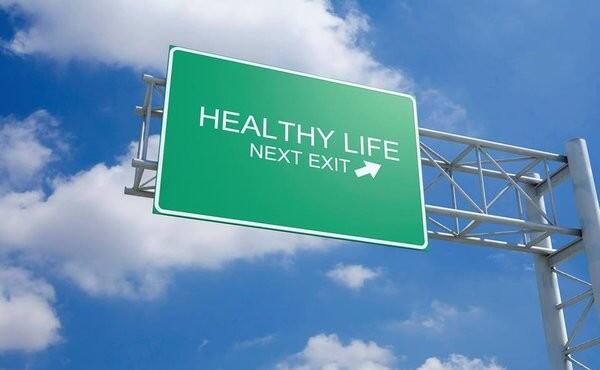Healthy Driver Tips

Being a commercial truck driver is a wonderful yet challenging and sometimes stressful career. Driving a truck can mean a lack of physical activity combined with convenient access to fast food (less healthy) options. Truck drivers must make a firm commitment to maintaining their health today to be able to fully enjoy the fruits of their labor in their later years.
Commit to Eating Right
These tips will help you make healthier fast food choices:
• Eat a variety of foods in moderate amounts.
• Use less salt on your food. Carry seasonings (like Mrs. Dash) in your cab so you can add extra flavor without the extra salt.
• Avoid foods labeled jumbo, giant, and super-sized. Larger portions mean more calories. Order a regular or junior portion instead.
• Choose grilled or broiled sandwiches with meats like lean roast beef, turkey or chicken breast.
• Request that special sauces or added dressings be left off your order, and add lots of veggies to the mix.
• Skip the croissant or biscuit in favor of a bun, bread or English muffin.
• Fill up at the salad bar if available, but beware of thick, creamy dressings.
• When eating Mexican food, choose bean burritos, soft tacos, fajitas and other items that are not fried. Chicken is better than beef, especially with the addition of lettuce, tomatoes and salsa. Limit refried beans, and go easy on cheese, sour cream, and guacamole. Watch out for fried tortilla shells! A taco salad can have more than 1,000 calories.
• Order thin crust pizza with vegetable toppings, start with a salad, and limit yourself to one or two slices of pizza.
• Avoid fat-free muffins because of sugar, skinless fried chicken which contains a great deal of fat, and Chinese food that is deep fried or high in sodium and fat.
Commit to Lowering Blood Pressure
High blood pressure increases your risk of having a heart attack, stroke, or kidney disease, as well as preventing you from passing your Department of Transportation (DOT) physical. The DOT requirement for blood pressure is 140/90 mm/hg. To keep your blood pressure under control, try the following tips:
• Talk with your healthcare professional. Take any medications as prescribed. If you do not understand how to take the medication, ask questions.
• Maintain a healthy body weight.
• Eat plenty of fruits and vegetables, and low-fat dairy products. Moderate your total fat intake.
• Limit sodium to no more than 2400 mg, or about one teaspoon of salt per day.
• Drink alcohol only in moderation, if at all, and never consume alcohol when you need to get on the road. For men, moderate use is two drinks per day, for women, one drink per day.
• Strive to be active with brisk walking or cycling a minimum of 30 minutes every day. Two 15-minute periods is fine when you don’t have a 30-minute block of time.
• Quit smoking. Smoking increases your risk of stroke, heart disease, peripheral artery disease, and several forms of cancer.
• Avoid caffeine, a stimulant which can raise your blood pressure. Coffee, tea and soda all have large amounts of caffeine.
Commit to Regular Exercise
Check with your doctor before you start an exercise program, if you have not been active or are at risk for heart disease or other chronic health problems. Use these tips for exercising on the road:
• Choose activities you enjoy. If you cannot find a place outdoors to walk, stash a few weights in your truck and work out in the cab.
• Carry a jump rope with you. It takes up little space and can be done almost everywhere.
• Make your workout a habit you do daily, or every other day.
• Play music to keep you entertained as you work out.
• Surround yourself with supportive people who will encourage you and keep you motivated.
• Don't overdo it. Many people give up exercise after a few days because they have overworked, sore muscles.






